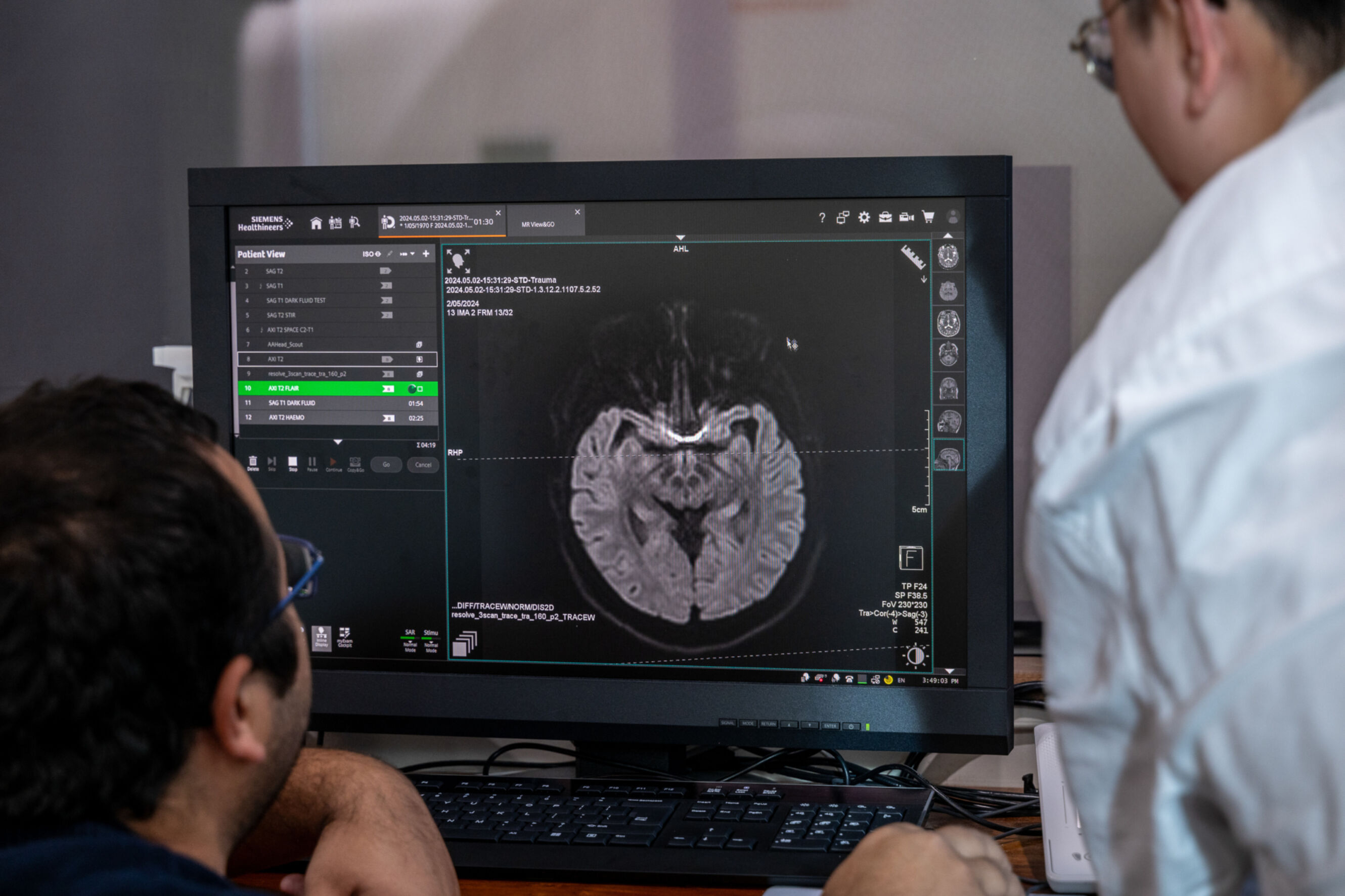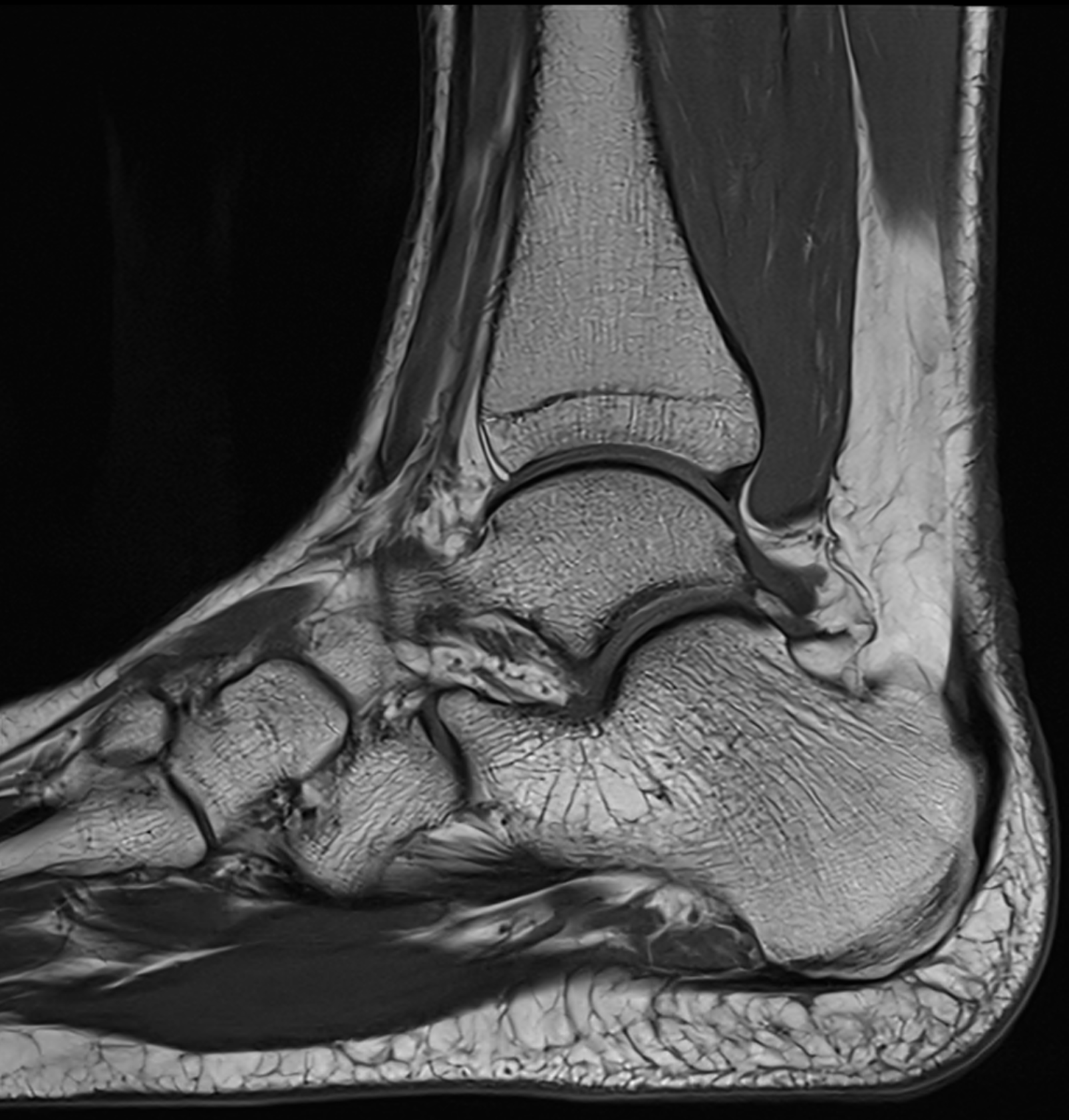
Magnetic Resonance Imaging (MRI)
MRI (Magnetic Resonance Imaging) is a specialised imaging technology which provides detailed images of the body using a powerful magnetic field combined with low energy radio-frequency waves (RF) to create high definition images of the tissues of the body. Unlike CT and x-Rays, MRI does not use any ionising radiation.

MRI Services
Harbour Radiology offers state of the art MRI imaging at multiple locations, including North Sydney (1.5T), Hoxton Park (1.5T), Kellyville (1.5T), Box Hill (3T) and Pymble (3T).
We use 1.5 Tesla (1.5T) and 3 Tesla (3T) Siemens wide bore MRI machines. Our MRIs have the latest imaging processing and deep resolve artificial intelligence software which significantly reduces the scan time and improves image quality.
Harbour provides a full range of Musculoskeletal MRI, Neurological MRI and Body imaging MRIs at our radiology centres across Sydney. This complete and comprehensive MRI imaging also includes:
- Wrist MRI
- Hand MRI
- Ankle MRI
- Foot MRI
- Knee MRI
- Liver MRI
- Hip MRI
- Pelvic MRI
- Prostate MRI
- Brain MRI
- MRI Enterography
Arthrogram (combined MRI/CT procedure)
Contrast MRI (Gadolinium)

MRI Scans: Common Uses
MRI has a strong affinity for soft tissue imaging. Any soft tissue can be well visualised on an MRI machine without the need for contrast agents. A common usage is a brain MRI to look for any abnormalities. This scan takes 20 minutes, does not require any injections or contrasts and allows your clinician to quickly rule out sinister brain pathologies. MRI is used for visualisation of muscles, ligaments or other bodily structures. For example, a knee MRI to check for an ACL (anterior cruciate ligament) tear is a common scan often associated with professional athletes.
During your scan images are acquired by MRI trained radiographers and are reported by our specialist and subspecialist trained Radiologists.
How much does a MRI cost?
MRI scans start at $290.
All MRI scans are private and do not have Medicare item numbers. Pricing is based upon the referral provided and may vary depending on the body part/region.
Frequently Asked Questions
Why choose a Harbour Radiology MRI scan?
Harbour Radiology has invested in a ’state-of-the-art 3T (3 Tesla) and 1.5T SIEMENS MRIs which offers in-scan entertainment, noise reduction technology and a wide bore for optimal in-scan comfort. Our MRI use latest SIEMENS patented Artificial Intelligence image enhancement to produce the highest-possible image detail.
We offer comprehensive musculoskeletal and body imaging MRI services
at competitive rates. Our services include full range of musculoskeletal
MRIs, body MRIs (such as liver, pancreas, renal, adrenal), MR
enterography, multiparamteric Prostate MRI, anal MRI (to assess for anal
fistula) and tumour staging MRIs ( such as rectal cancer or cervical
cancer staging). These exams are performed by highly trained MR
radiographers and are supervised and reported by our highly trained
specialised Radiologists.
All our MRI machines are wide-bore Siemens, some of the largest in the market, making it a suitable option for claustrophobic patients.
What happens during my MRI appointment?
MRI scan times at Harbour Radiology vary, for complex or multi- region scans it can take up to 30 minutes but other scans can be as short as 10 minutes.
In some cases an injection of MRI contrast dye (Gadolinium) may be required. This gives a higher level of detail in certain clinical situations. Contrast dye may be injected intravenously, sometimes it is injected directly into a particular joint (MRI arthrography) to allow optimal visualisation of fine ligaments and joint cartilage.
One of our experienced team members will explain what is involved for your MRI scan. You will be given a Questionnaire to complete, this gives us essential information about your medical history, allergies and any surgeries involving metal implants.
Depending on the area being scanned you may be asked to change into a gown.
Please advise our staff if you are pregnant or think you may be pregnant.
Why can’t I take metal objects into a MRI scan?
The MRI machine has a very powerful magnet which generates a strong magnetic field – this means that metal objects can not be taken into the scan room as they could be rapidly dislodged by the magnetic field or heat up, which could be potentially dangerous.
You will be asked to remove any metal objects on your person including earrings and other piercings, phones, watches, keys, coins necklaces, bracelets and other jewellery.
Please advise our staff if you have or think you might have any metal implants, prostheses, aneurysm coils or clips inside your body.
How much does an MRI scan cost?
In order to provide our patients with the most advanced MRI technology we charge a subsidised out of pocket fee for our MRI services. For most MRIs the fee vary, starting at $290 per region whilst some of the more complex or subspecialised exams attract higher fee. Please contact our reception staff (email, call, make online booking or send us a message) and we will provide you with a quote prior to the exam.
How to prepare for an MRI scan
Important: Please notify our staff if you have ever had any metal injuries to your eye or if you have any of the following: Cardiac pacemaker or defibrillator, cochlear implants, metal clips on arteries and implanted devices.
Please bring your request form from your referring practitioner to your appointment.
Please remember to bring all previous X-rays and imaging reports with you to your appointment.